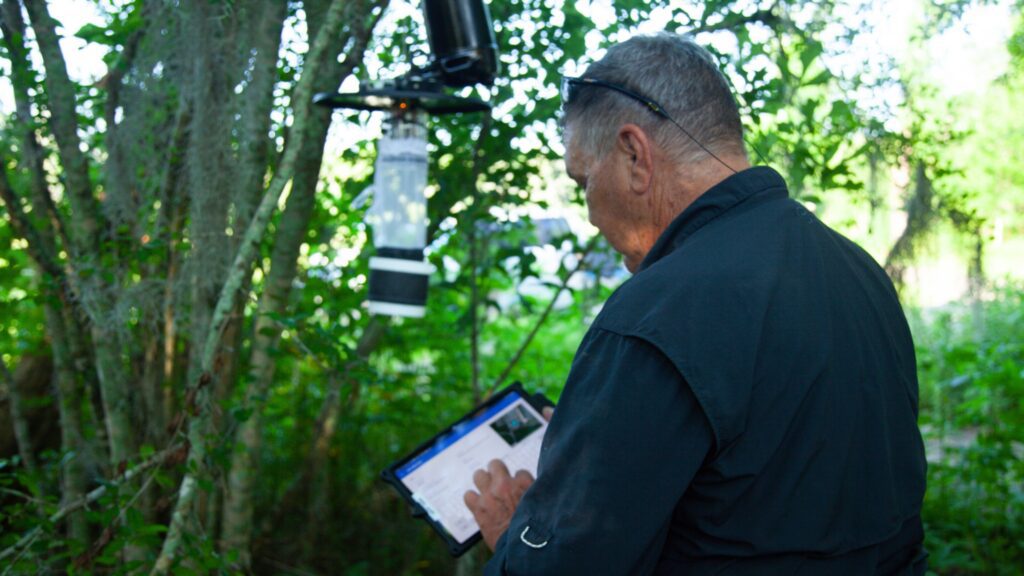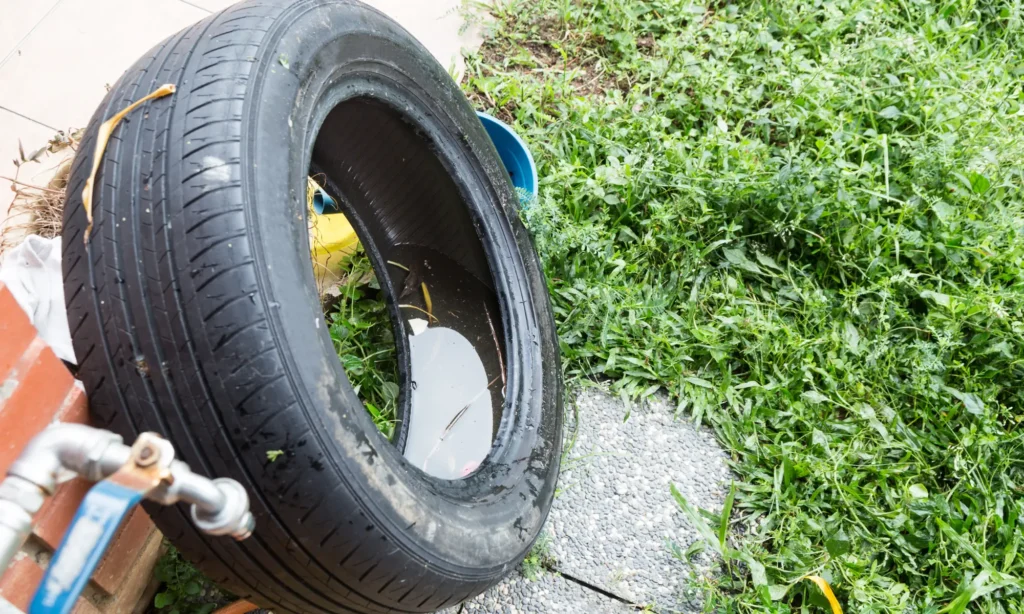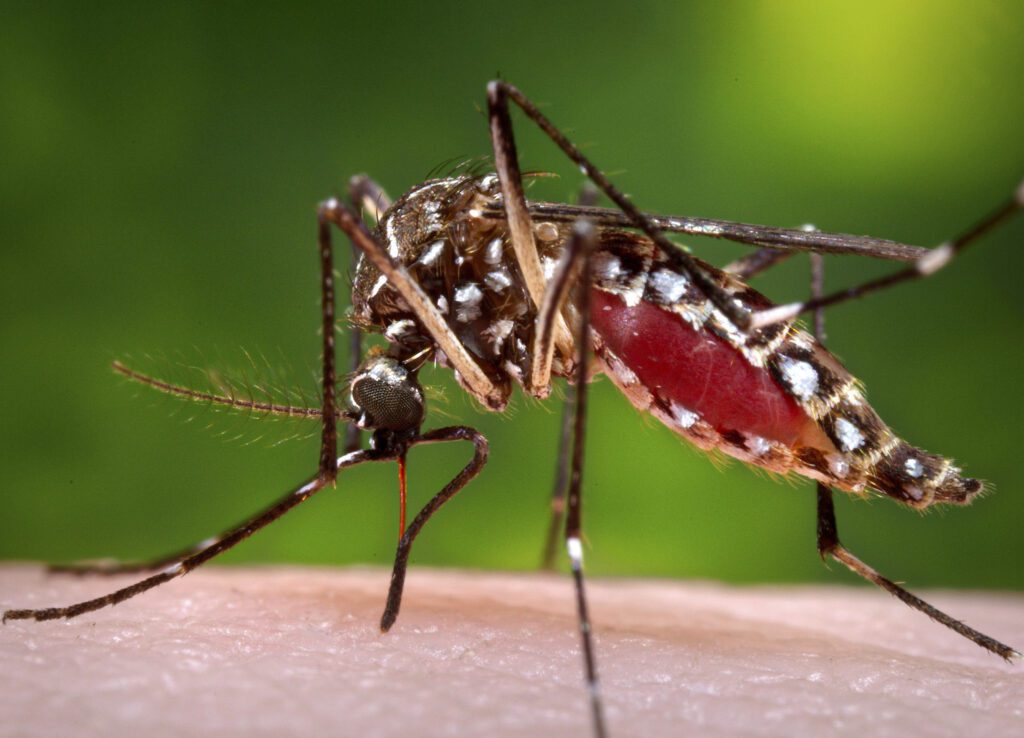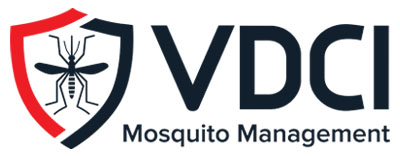Many people tend to lump all mosquitoes together, assuming they share the same behaviors—feeding on blood, flying at dusk, and spreading diseases. However, there are more than 3,500 mosquito species worldwide, making them one of the most adaptable and diverse groups of insects. These species thrive in environments ranging from bustling urban spaces to more remote areas.

The differences between urban and rural mosquito species go beyond geography. Their behaviors, feeding preferences, diseases they can transmit, and interactions with humans and wildlife differ significantly. Understanding these distinctions is essential for effectively managing nuisance populations and disease risks and protecting public health in our communities.
Urban Mosquitoes: Adapted for Human Habitats
The Aedes aegypti and Aedes albopictus mosquitoes could be considered the quintessential urban mosquitoes. These species have evolved to thrive in close proximity to human populations and feed almost exclusively on human blood, typically seeking blood meal during the daytime hours when people are most active. This behavior not only makes it an annoying pest but also an efficient vector of dangerous diseases such as dengue, Zika virus, and chikungunya.
Aedes aegypti can efficiently convert nutrients from human blood into energy, reducing its reliance on nectar or plant sugars, which other mosquito species primarily feed on. Their unique adaptation likely developed during transatlantic migration, where the species survived aboard ships by feeding on human blood and breeding in stored drinking water. As such, Aedes aegypti favors artificial containers found in residential areas like flowerpots, buckets, tarps, bird baths, and potholes as breeding sites. Aedes Albopictus can breed in a variety of natural and artificial containers such as tree holes, rock pools, tires, stormwater drains, and concrete slabs.

Simple measures such as eliminating standing water and using window screens can drastically reduce populations. Ongoing monitoring is also important to help government leaders gauge and respond to public health risks. Professionals utilize a variety of trapping and laboratory testing methods to monitor population dynamics and disease presence. For added protection, make a habit of wearing long sleeves and pants, and consistently apply mosquito repellent containing DEET to protect yourself during outdoor activities.
Rural Mosquitoes: Flexible Feeders In Natural Habitats
Aedes aegypti’s strong preference for humans sets it apart from rural mosquitoes. Rural mosquitoes, such as Aedes triseriatus, feed on a range of small mammals, such as chipmunks and squirrels. This flexibility in diet is essential for their survival in less densely populated environments where human hosts are less abundant. They are most active during dusk and dawn.

Aedes triseriatus typically breeds in tree holes or natural containers within the forest canopy. However, management is still important as the species can transmit dangerous diseases like La Crosse virus to individuals who are located in smaller rural communities.
Like with urban mosquitoes, mosquito surveillance and disease monitoring are critical for assessing health risks. However, prevention can be difficult because their breeding sites are harder to identify and access. Barrier treatments are often utilized to minimize human-mosquito interaction. These treatments involve applying EPA-registered adulticides in transitional areas where urban and residential spaces meet rural environments. Still, be sure to wear appropriate clothing and use repellents when in these locations.
Protect Yourself From All Types of Mosquitoes
Whether in the heart of a city or a quiet countryside, mosquitoes can be both annoying and dangerous. Despite differences in their behaviors and habitats across urban and rural settings, their capacity to disrupt outdoor activities and spread disease remains consistent. By taking proactive measures and supporting effective mosquito management strategies, you can safeguard your health and enjoy your favorite outdoor activities with confidence and peace of mind.
Contact Our Experts
Complete the form below or call us at 800-413-4445 to speak to an expert about your mosquito management needs.
 Since 1992, Vector Disease Control International (VDCI) has taken pride in providing municipalities, mosquito abatement districts, industrial sites, planned communities, homeowners associations, and golf courses with the tools they need to run effective mosquito control programs. We are determined to protect the public health of the communities in which we operate. Our mosquito control professionals have over 100 years of combined experience in the field of public health, specifically vector disease control. We strive to provide the most effective and scientifically sound mosquito surveillance and control programs possible based on an Integrated Mosquito Management approach recommended by the American Mosquito Control Association (AMCA) and Centers for Disease Control and Prevention (CDC). VDCI is the only company in the country that can manage all aspects of an integrated mosquito management program, from surveillance to disease testing to aerial application in emergency situations.
Since 1992, Vector Disease Control International (VDCI) has taken pride in providing municipalities, mosquito abatement districts, industrial sites, planned communities, homeowners associations, and golf courses with the tools they need to run effective mosquito control programs. We are determined to protect the public health of the communities in which we operate. Our mosquito control professionals have over 100 years of combined experience in the field of public health, specifically vector disease control. We strive to provide the most effective and scientifically sound mosquito surveillance and control programs possible based on an Integrated Mosquito Management approach recommended by the American Mosquito Control Association (AMCA) and Centers for Disease Control and Prevention (CDC). VDCI is the only company in the country that can manage all aspects of an integrated mosquito management program, from surveillance to disease testing to aerial application in emergency situations.

